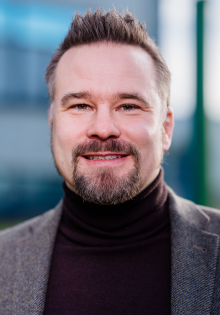The German Research Foundation (DFG) and its French partner organisation, the French national research agency (ANR), are funding a new project led by Paderborn chemist Professor Matthias Bauer for a period of three years. The funding to the tune of almost �1 million is to be used to develop new compounds that combine the harnessing of sunlight with the production of hydrogen. To this end, the researchers involved in the project are using materials that for the very first time do not contain any expensive or difficult-to-obtain precious metals. Instead, they are using exclusively iron and cobalt, which are earth-abundant metals (EAM). Its approach will enable the team of researchers to improve the ecological balance sheet for the production of green hydrogen. Paderborn University hopes to thereby contribute to national and international efforts to find new hydrogen technologies.
Green hydrogen is an essential component of the energy transition. ��Large parts of industry and mobility can be operated in an environmentally friendly way using hydrogen. In addition to the established processes of electrolysis using wind and solar power, the direct conversion of sunlight into hydrogen is another path that needs to be further developed in the future,�� says Bauer.
Through the approved project, the Paderborn chemist and his team of researchers are looking towards the future, a future in which raw materials will become increasingly scarce. The systems that produce hydrogen must therefore leverage substances that are available in large quantities. To produce hydrogen using sunlight, substances are needed that harvest the light and convert it into chemical energy. Iron, which can be obtained in an environmentally friendly way and is bio-compatible, is used for this purpose. The chemical energy is converted into hydrogen using a second component made of cobalt.
The approach is based on the example of a plant leaf, through which nature harvests vast volumes of sunlight and converts this light into chemical energy. ��The project is an impressive example of how exciting basic research can be linked to pressing societal challenges. We��re delighted to be able to contribute to the hydrogen strategy as an international team uniting researchers from Strasbourg, Metz, Nancy, Berlin and Paderborn,�� says Bauer.



